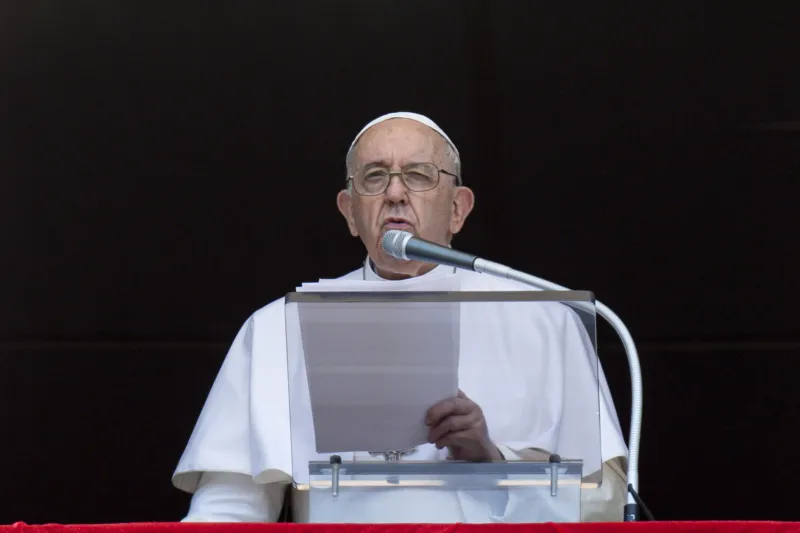
Vatican City, Nov 27, 2022 / 08:25 am (CNA).
Pope Francis has spoken out against violence in the Holy Land, after one teenager died in a blast in Jerusalem and another teenager died in armed clashes in Palestine last week.
“Violence kills the future, shattering the lives of the young and weakening hopes for peace,” the pope said in an appeal at the end of his Sunday Angelus Nov. 27.
A 16-year-old Israeli boy was killed, and at least 14 people were injured, after two bombs exploded at bus stops on the outskirts of Jerusalem Nov. 23. Israeli authorities said the attacks appear to have been carried out by Palestinian militants, Reuters reported.
Late on Tuesday, Nov. 22, a 16-year-old Palestinian boy was shot dead by Israeli forces during clashes in the city of Nablus in the Israeli occupied West Bank, according to Palestinian officials.
Pope Francis said he is following with concern the “increase in violence and clashes” between Israel and Palestine, and called the twin blasts in Jerusalem “cowardly attacks.”
“Let us pray for these young men who died and for their families, especially their mothers,” Francis said. “I hope that the Israeli and Palestinian authorities will more readily take to heart the search for dialogue, building mutual trust, without which there will never be a peaceful solution in the Holy Land.”
After the Angelus, the pope also greeted participants of a Nov. 27 march to denounce sexual violence against women.
Sexual violence against women is “unfortunately a general and widespread reality everywhere and also used as a weapon of war,” he said. “Let us not tire of saying no to war, no to violence, yes to dialogue, yes to peace.”
If you value the news and views Catholic World Report provides, please consider donating to support our efforts. Your contribution will help us continue to make CWR available to all readers worldwide for free, without a subscription. Thank you for your generosity!
Click here for more information on donating to CWR. Click here to sign up for our newsletter.





Human beings are made in the image and likeness of the divine – declare Scriptures. Thus wrote Mahatma Gandhi: “Let the Jews who claim to be the chosen race prove their title by choosing the way of non-violence for vindicating their position on earth. Every country is their home, including Palestine, not by aggression but by loving service”.
Israel does not act as the aggressor, though they defend themselves. Of all the armies in the world, it could be argued that the IDF is the most humane. Who would want to fall into the hands of the Pals or the Russian’s for that matter?
Why are the Arab brother countries not taking in the Pals? There is good reason.
Though influential and revered by many, Gandhi had his shortcomings that are well documented. It could be argued that Gandhi was antiSemitic amongst his other frailties.
If one speaks of the “divine” let the name of Jesus be proclaimed. He is king of the Jews, in case someone is unaware.
1 Thessalonians 5:3 While people are saying, “There is peace and security,” then sudden destruction will come upon them as labor pains come upon a pregnant woman, and they will not escape.
Jeremiah 6:14 They have healed the wound of my people lightly, saying, ‘Peace, peace,’ when there is no peace.
John 3:16 “For God so loved the world, that he gave his only Son, that whoever believes in him should not perish but have eternal life.